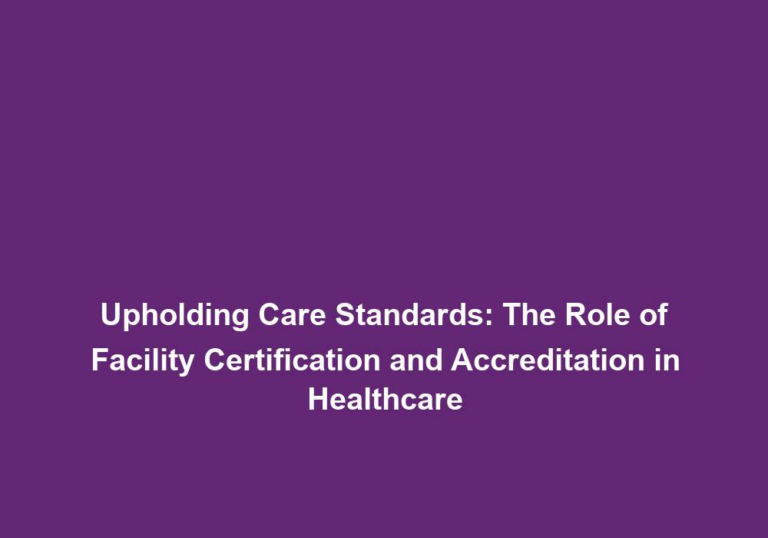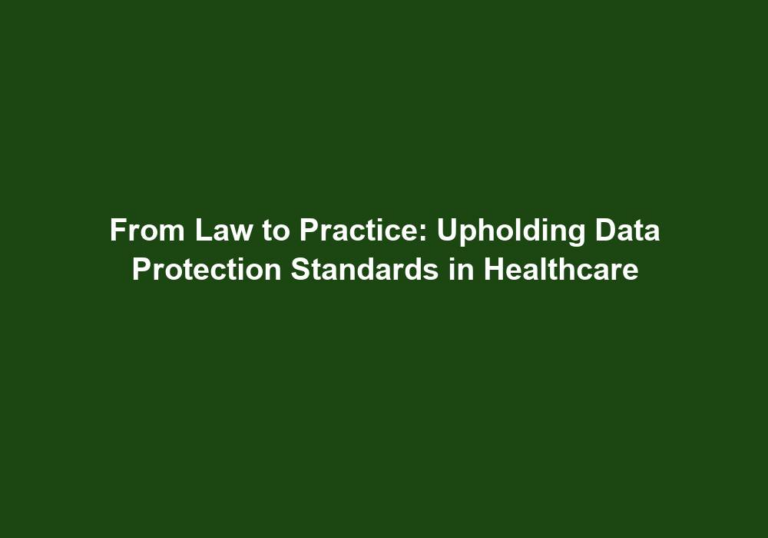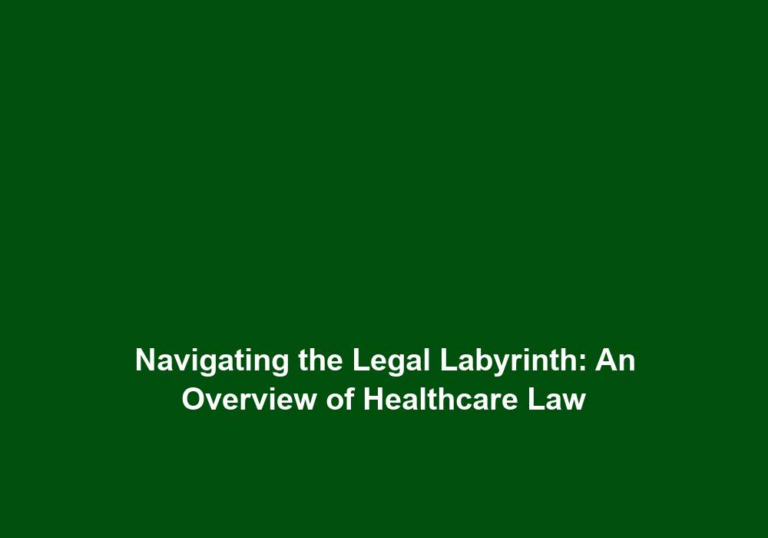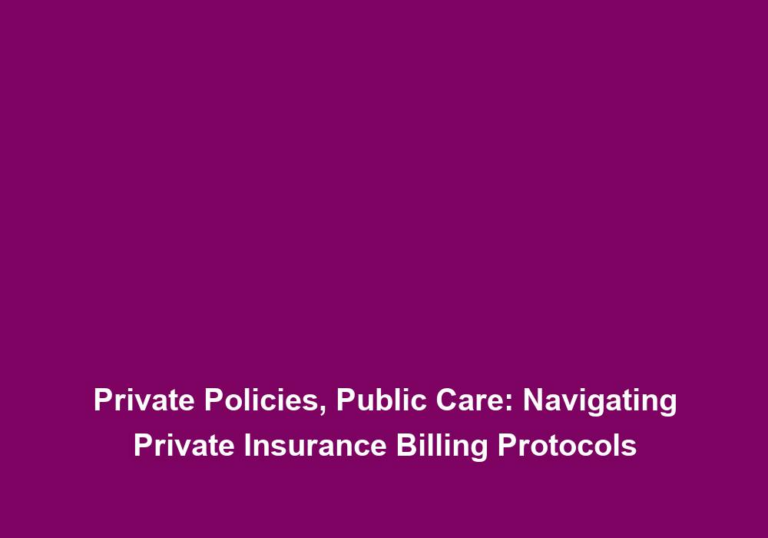Holding the Moral Compass: Ethics and Clinical Governance in Healthcare
In the world of healthcare, the importance of ethics and clinical governance cannot be overstated. Healthcare professionals are entrusted with the lives and well-being of their patients, making it essential to maintain a strong moral compass and adhere to high standards of care. This article delves into the significance of ethics and clinical governance in healthcare, exploring their role, principles, and impact on patient care.
The Significance of Ethics in Healthcare
Ethics, in the context of healthcare, refers to the moral principles and values that guide the behavior and decision-making of healthcare professionals. It provides a framework for ensuring that patients receive appropriate and equitable care, regardless of their background, beliefs, or personal characteristics. By upholding ethical standards, healthcare professionals can establish trust with their patients, fostering a positive and compassionate healthcare environment.
Ethical principles in healthcare are built on several key pillars:
- Autonomy: Respecting the rights of patients to make informed decisions about their own healthcare is fundamental. Healthcare professionals should empower patients to actively participate in their treatment plans, ensuring they have the necessary information to make informed choices.
- Beneficence: Acting in the best interests of the patient and ensuring their overall well-being is a core ethical principle. Healthcare professionals must prioritize the health and welfare of their patients, providing care that is aimed at improving their condition and quality of life.
- Non-maleficence: Avoiding harm to patients and minimizing risks associated with healthcare procedures is crucial. Healthcare professionals must take all necessary precautions to prevent harm and prioritize patient safety.
- Justice: Distributing healthcare resources fairly and providing equal access to care is essential. Healthcare professionals must work towards eliminating disparities in healthcare access and ensure that resources are allocated based on need rather than other factors.
- Confidentiality: Safeguarding patient information and respecting their privacy is a vital ethical principle. Healthcare professionals must maintain the confidentiality of patient records and ensure that personal information is protected.
- Veracity: Communicating truthfully and honestly with patients is a fundamental ethical obligation. Healthcare professionals must provide accurate information, explain risks and benefits clearly, and ensure patients have a complete understanding of their healthcare options.
The Role of Clinical Governance in Healthcare
Clinical governance is a systematic approach to maintaining and improving the quality of patient care within healthcare organizations. It encompasses various processes, structures, and systems that promote effective and safe healthcare delivery. By establishing robust clinical governance frameworks, healthcare organizations can ensure that their services are evidence-based, patient-centered, and continuously monitored and improved.
Key elements of clinical governance include:
- Clinical Audit: Regularly reviewing and assessing the quality and safety of patient care is vital. Clinical audits help identify areas for improvement, ensure adherence to guidelines, and enhance the overall quality of care provided.
- Clinical Risk Management: Identifying and managing potential risks to patient safety is a critical component of clinical governance. By implementing risk management strategies, healthcare organizations can minimize the occurrence of adverse events and ensure patient safety.
- Clinical Effectiveness: Ensuring that healthcare interventions and treatments are based on the best available evidence is essential. Clinical effectiveness focuses on providing care that is supported by scientific research, maximizing positive outcomes for patients.
- Education and Training: Providing healthcare professionals with the necessary knowledge and skills to deliver high-quality care is crucial. Continuous education and training programs help healthcare professionals stay updated with the latest advancements in their field, enhancing their ability to provide optimal care.
- Patient and Public Involvement: Engaging patients and the public in decision-making processes and service development is a key aspect of clinical governance. By involving patients in their care plans and seeking their feedback, healthcare organizations can improve patient satisfaction and tailor services to meet their needs.
The Intersection of Ethics and Clinical Governance
Ethics and clinical governance are interconnected, working hand in hand to ensure the provision of ethical and high-quality healthcare. While ethics provides the moral foundation for healthcare practice, clinical governance provides the frameworks and mechanisms to translate ethical principles into action.
Upholding ethical standards through clinical governance involves:
- Ethical Decision-Making: Clinical governance frameworks assist healthcare professionals in making ethical decisions by providing guidelines and protocols for considering the best interests of the patient and ensuring their autonomy. Ethical decision-making frameworks help healthcare professionals navigate complex situations and ensure that patient welfare remains paramount.
- Monitoring and Accountability: Clinical governance promotes transparency and accountability in healthcare organizations, allowing for the identification of any ethical breaches and the implementation of corrective measures. Regular monitoring and evaluation ensure that ethical standards are upheld and any deviations are addressed promptly.
- Continuous Improvement: By regularly auditing and reviewing clinical practices, healthcare organizations can identify areas for improvement, ensuring that ethical standards are upheld and patient care is continuously enhanced. Continuous improvement efforts help healthcare organizations adapt to changing needs and advancements in healthcare practices.
The Impact on Patient Care
The integration of ethics and clinical governance has a profound impact on patient care and outcomes. When healthcare professionals adhere to ethical principles and clinical governance frameworks, patients can expect:
- Improved Safety: Ethical decision-making and clinical risk management minimize the potential for harm and safeguard patient safety. Healthcare organizations that prioritize safety protocols and adhere to ethical standards create an environment where patients can trust that their well-being is protected.
- Enhanced Quality of Care: Clinical effectiveness ensures that patients receive evidence-based and optimal healthcare interventions. By incorporating the best available evidence into clinical practice, healthcare professionals can provide high-quality care that yields positive outcomes.
- Respect for Autonomy: Ethical principles of autonomy and informed consent empower patients, allowing them to actively participate in their own healthcare decisions. Healthcare professionals who respect patient autonomy create a collaborative and patient-centered approach to care.
- Greater Trust and Confidence: Transparent and accountable healthcare organizations build trust with patients, fostering a positive healthcare experience. Patients who trust their healthcare providers are more likely to engage in open communication, follow treatment plans, and have confidence in their care.
- Equitable Access to Care: Ethical principles of justice ensure that healthcare resources are distributed fairly, promoting equal access to care for all patients. By prioritizing equitable access, healthcare organizations can address disparities and ensure that healthcare services are accessible to everyone, regardless of their background or circumstances.
Conclusion
Ethics and clinical governance are integral components of the healthcare system, providing the moral compass and structures necessary to deliver high-quality, patient-centered care. By upholding ethical principles and implementing robust clinical governance frameworks, healthcare professionals and organizations can ensure that the well-being and best interests of patients remain at the forefront of healthcare practice.







